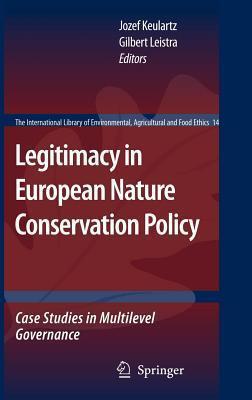
Legitimacy in European Nature Conservation Policy: Case Studies in Multilevel Governance: The International Library of Environmental, Agricultural and Food Ethics, Volume 14.
아직 평점이 없습니다
형식
전자책
페이지
289
언어
영어
출판됨
Jan 1, 2008
출판사
Springer
ISBN-10
1281116459
ISBN-13
9781281116451
설명
This work delves into the intricacies of legitimacy within European nature conservation policy, offering a comprehensive exploration of multilevel governance. Through case studies, the authors examine how various levels of government and civil society interplay in crafting effective environmental policies. By focusing on contemporary challenges, they reveal the dynamics that underlie decision-making processes in this critical area.
The book discusses the implications of various democratic theories on nature conservation, shedding light on how legitimacy is perceived and enacted at different governance tiers. As policymakers grapple with pressing environmental issues, the analysis presented in this volume highlights the necessity for inclusive, well-structured governance frameworks that resonate with the public's values and needs.
Keulartz and Leistra provide insights into the complexities of environmental ethics and policy, making it an essential read for scholars, practitioners, and students interested in the future of conservation. Their nuanced approach not only deepens the understanding of legitimacy but also poses vital questions about the efficacy of current practices in safeguarding nature across Europe.
The book discusses the implications of various democratic theories on nature conservation, shedding light on how legitimacy is perceived and enacted at different governance tiers. As policymakers grapple with pressing environmental issues, the analysis presented in this volume highlights the necessity for inclusive, well-structured governance frameworks that resonate with the public's values and needs.
Keulartz and Leistra provide insights into the complexities of environmental ethics and policy, making it an essential read for scholars, practitioners, and students interested in the future of conservation. Their nuanced approach not only deepens the understanding of legitimacy but also poses vital questions about the efficacy of current practices in safeguarding nature across Europe.